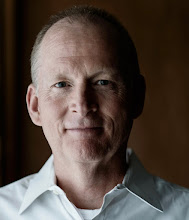 I found the following post by Mark Batterson to be insightful, and a great challenge to all of us as we stand on the threshold of 2009.
I found the following post by Mark Batterson to be insightful, and a great challenge to all of us as we stand on the threshold of 2009.Have you ever left your gas cap at a gas station after filling up? Or what about leaving your bank card at ATM machine after making a withdrawal? I know. Most cars come equipped with an attached gas cap so you can't forget. And most ATM machines beep when the card is ejected. But that phenomenon of forgetting is something psychologists call a postcompletion error. It is the tendency, after completing a task, to forget the steps that got you there.
I think the postcompletion error is one of the dangers we face going into a new year. Let me put it this way. I know lots of people who have been Christians for twenty-five years. But they don't have twenty-five years of experience. They have one year of experience repeated twenty-five times. Why? Because God has to re-teach them the same lessons over and over and over again.
What lessons has God taught you this past year? Let's not forget the old lessons so God can teach us new lessons next year.
I think a huge part of discipleship is overcoming this postcompletion error. If you've overcome an addiction, don't forget the steps you took. If your marriage has been reconciled, don't forget the steps. If you've experienced success in business, don't forget the steps. Share the steps with others. That's called discipleship.
I don't want to forget how I got here.

















